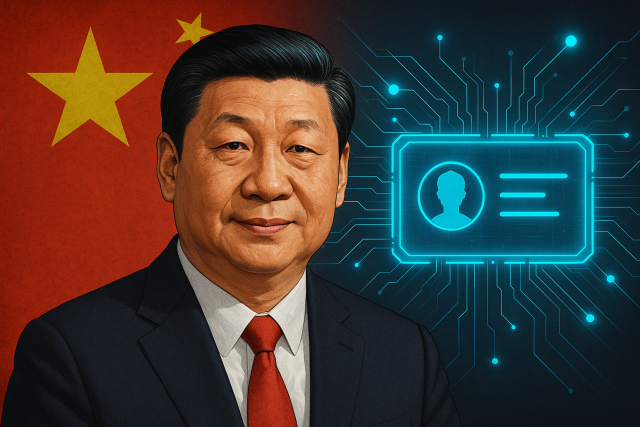The Chinese government plans to introduce a centralized online ID system to enhance control over internet users, raising concerns about privacy, freedom of expression, and increased surveillance. With mandatory identity checks across all social media platforms, it has become nearly impossible for users to remain anonymous.
However, this strict online environment is set to encounter even tighter controls with the launch of a state-issued national internet identification number. Rather than requiring residents to submit their personal information for identity checks separately on each online platform, the administration now plans to centralize the process by issuing a virtual identification number that will enable individuals to log in across multiple social media websites and applications.
When will the new system be implemented?
The finalized rules, published in late May and to be implemented in mid-July, aim to protect citizens’ identities and support the digital economy. China has tightened its grip on the digital space through an extensive network of sensors since Xi Jinping took power in 2012. The Xi administration suspends accounts, removes posts, and assists IT officials in identifying critics, crushing any sign of opposition before it can gain traction. Experts warn that this policy could further limit freedom of expression by requiring individuals to cede more control to the state.
The finalized regulations were announced following a proposal opened for public comment last summer. Despite facing opposition from law professors, human rights experts, and some internet users during the consultation, the finalized regulations largely resemble the original draft. “This is a state-led, unified identity system capable of real-time monitoring and blocking of users,” stated Xiao Qiang, a research scientist examining internet freedom at the University of California, Berkeley. “It can directly erase voices it doesn’t like from the internet, so it’s more than just a surveillance tool – it is an infrastructure of digital totalitarianism.”
China’s control of the global internet is delegated mainly to various decentralized groups, with authorities relying on social media platforms to flag problematic comments. Xiao warned that a centralized internet ID system could enable the government to erase a user’s presence across multiple platforms simultaneously.
Government Can Trace Users’ Digital Footprints

Shane Yi, a researcher at China Human Rights Defenders, an advocacy group, echoed Xiao’s concerns. The system grants the Chinese government increased authority to “do what they want when they see fit” on the internet, as authorities can trace users’ entire digital footprint “from point zero,” she remarked.
In domestic discourse, Chinese state-run media have characterized the internet ID as a “bullet-proof vest for personal information” and have promoted the system as being capable of significantly mitigating the risk of personal data breaches.
As of last month, over six million individuals had registered for the ID, according to Chinese state-run media outlet Xinhua, amid an estimated online population of over one billion.
A cybersecurity representative from the Ministry of Public Security informed Xinhua that the Internet ID service is strictly “voluntary”; however, the government actively encourages diverse industries and sectors to adopt this system. “It aims to offer individuals a secure and efficient method of identity verification to support the digital economy,” the person stated.









